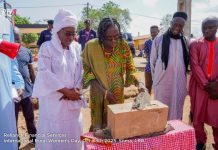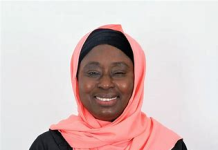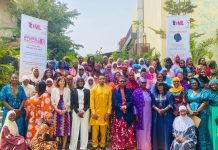In this edition of Women and Development, we will discuss issues affecting women and girls with a special focus on Female  Genital Mutilation (FGM). This has created a lot of debate between some Islamic scholars that have been giving assurances to some believers that FGM is an Islamic injunction.
Genital Mutilation (FGM). This has created a lot of debate between some Islamic scholars that have been giving assurances to some believers that FGM is an Islamic injunction.
In the past week,the Guardian Media and Safe Hands for Girls conducted an “End FGM Academy” from the 16 to 20 November, 2015 which brought activists and journalists together to map out a way forward in ending FGM in the Gambia in a generation by creating awareness.
FGM has been a deep rooted tradition in the Gambia for more than thirty years and activists have been fighting to bring an end to the practice but still quite a good number of people are exercising it secretly.
Some years ago, female circumcision or mutilation used to be celebrated in grand style, because many belief that it was a way of worshipping or certifying a religious injunction.
Tunko Sillah, a broadcaster with Karia Fm Radio, has shared her experience with this columnist on what role journalists can play to end female genital mutilation. She said she was one of the people who opposed the activists advocating against FGM. She stressed the need for journalists and broadcasters to take it upon themselves to educate the masses on the effects of FGM. She said journalists and broadcasters should create an enabling environment for victims to be willing to share their stories with the general public.
“From now on, I’ll always stand by all the activists to fight against FGM to bring it to an end,” she remarked.
She also dilated on the importance of educating the masses through various means of communication. She promised that if she goes back to her community, she would make it a point of duty to engage women and men to discuss issues affecting women.
According to Tunko, from what she has seen for herself, she would not want anybody to be subjected to such a cruel act that some people promote, all in the name of tradition. “From today, I said end to FGM in the Gambia,” she said.
MOMODOU GAJAGA, AFRICRADIO
Momodou Gajaga, also a participant, described FGM as a harmful traditional practice which young girls have been subjected to for quite a while.
Mr. Gajaga said “with what I have seen, I’ll not allow anyone to subject my sister or my daughter to female genital mutilation.”  He added “this is a harmful act, it is bad and no one should advocate for this anymore. I believe with education, people who are practicing this old aged tradition should change.”
He added “this is a harmful act, it is bad and no one should advocate for this anymore. I believe with education, people who are practicing this old aged tradition should change.”
Gajaga said they cannot sit by and watch such acts to be perpetrated against their daughters, sisters and aunties. “This must come to an end,” he insisted. The practice of FGM was not supported by any of the scholars who spoke at the training.
“We all agreed that it is harmful, it causes a lot of blood letting, and it can also put the person at risk for other infections. I believed we all should stand up and say no to female genital mutilation,” stressed Gajaga.
He said the role that media practitioners can play to bring an end to FGM is to engage in a massive education and advocacy against the practice. He also stressed the need for the media to be engaging influential figures in the campaign so that the masses would listen to those voices.
AMADOU O BAH BWIAM COMMUNITY RADIO
Another interviewee, Mr. Amadou O. Bah, Bwiam Community Radio Manager, described the training as an opportunity to engage media practitioners. According to him, he has plans to bring together influential religious leaders and health experts to engage the communities through his radio platform. He said female genital mutilation should not be promoted in the society because it has no space in the modern day civilization. Mr. Bah noted that with collaborative effort, FGM will be eradicated in its totality.
engage the communities through his radio platform. He said female genital mutilation should not be promoted in the society because it has no space in the modern day civilization. Mr. Bah noted that with collaborative effort, FGM will be eradicated in its totality.
“This tradition should be abandoned by society, it has to fade away. Can you imagine how girls suffer? I really sympathize with those who have undergone this traumatizing experience. This can even affect them physiologically and physically,” he said.
He concluded“It was made clear to us that it is not an Islamic injunction and people should not hide behind Islam and hurt others.”


















